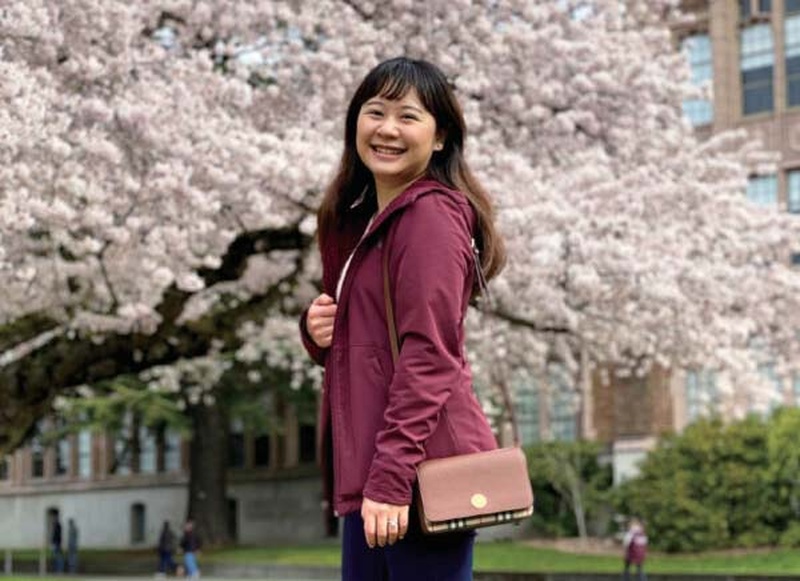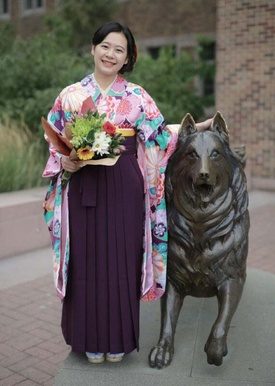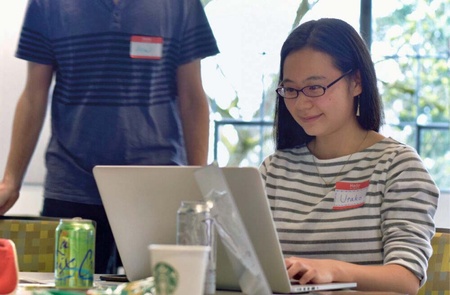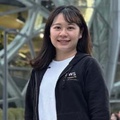Despite her extremely busy career as a software engineer, Kase Utako is dedicated to nurturing the next generation of engineers. We had the opportunity to talk to her about her journey to job hunting, her work at her current workplace, and her thoughts on future engineers.
* * * * *
I became obsessed with programming in high school
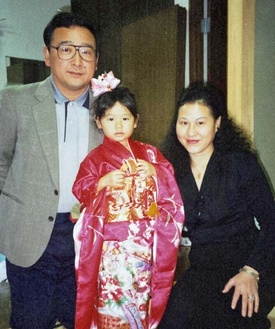
Utako says that from an early age she loved pressing buttons on TV remote controls and radios, and by the time she was in elementary school she had no trouble using a computer. She says that the turning point in her life came when she encountered programming in an IT class during her high school years at an international school.
"I learned CSS and HTML and was amazed at how much control I could have over websites that I had only seen before."
There was an incident that made Shiori decide that she wanted to work as an engineer in the IT industry. She was taken on a tour of the Google Japan office by a high school alumni as part of an IT class. The moment she stepped inside the office, her vague image of the job she had had changed.
"Until then, I had negative images of work, such as it being boring, difficult, and painful. But everyone working in the Google Japan office looked so bright and dazzling. I aspired to work in a place like that."
At the time, Google Japan's office provided three free meals (breakfast, lunch, and dinner) in the cafeteria, all vending machines were free to use, and entertainment facilities such as game consoles were also available. For high school student Utako, it was a dream workplace. She also heard that there were few female engineers, and intuitively felt that "this might be my chance to shine."
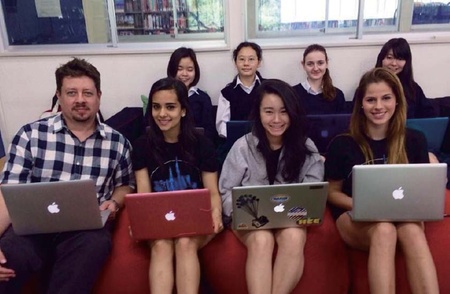
Having studied abroad in junior high school, Utako decided to study at a university in the US and prepared for the entrance exams. She chose the University of Washington, which has a strong computer science program, as her first choice and was successfully accepted. This is when Utako began her journey as an engineer.
The road to becoming an engineer wasn't always smooth sailing
Her time at the University of Washington was a constant struggle. The acceptance or rejection of the major of her choice when moving up to the third year is determined by her grades and extracurricular activities in the first and second years. Utako's dream of majoring in computer science was one of the most difficult majors at the University of Washington to get into.
Judging by her grades, Utako decided it would be difficult to get into her second choice, Information Studies, but because it was the second most popular major after Computer Science, she was rejected both the first and second time. While her classmates around her were getting accepted into their chosen majors one after the other, she felt depressed, thinking that she hadn't even made it to the starting line.
From here, she had two options. The first was to transfer to another university and major in computer science. However, because the required classes required for graduation differ between universities and credits are not transferable, it often takes an extra year or two to graduate. The second option was to switch to a different major at the University of Washington and graduate straight away. After much deliberation, Utako decided to major in geographic information at the University of Washington, taking into consideration the financial burden on her parents.
The only problem was that geographic information studies were considered a liberal arts degree. For Utako, who aims to become an engineer, this worked against her when looking for an internship or job. In fact, she applied to many internships, but was rejected by all of them.
"I got so few replies that I started to worry about my internet connection (laughs). I was rejected from every single one. I felt such a sense of failure that I wondered if I should give up on becoming an engineer."
Frustrated by not being able to study what she wanted, Utako decided to take a chance and turn the situation around. She chose to minor in computer science at the University of Washington Bothell campus. This was a course program that was not available at the Seattle campus where Utako attended. She had to commute to the Bothell campus, an hour and a half away by bus, twice a week, and so began her grueling student life of commuting between two campuses.
Still, his internship applications were not accepted, and he was rejected by many companies every day. However, things started to change when an acquaintance who worked at Amazon recommended an internship at the company. "I had the impression that it would be impossible to get an internship at Amazon because it's a big company, so I had never actually applied before." His acquaintance encouraged him, saying, "At worst, you'll be rejected, and it won't affect anything else."
So, without any expectations, I applied for a summer internship and was accepted! The company had a system that directly led to a job offer, so my efforts over the course of several months as an intern were recognized and I was offered a job at Amazon as a new graduate. Although I had struggled with my major, my efforts finally paid off.
"I had almost given up on the path to becoming an engineer a year ago, but it suddenly opened up for me, and I was constantly surprised and delighted."
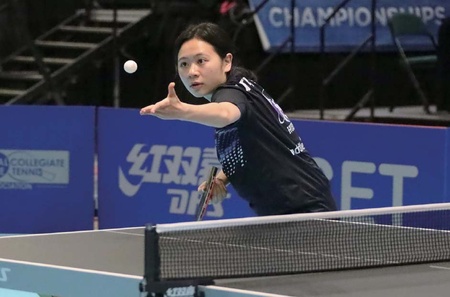
*This article is reprinted from " Soy Source " (April 11, 2023).
© 2023 Jaejun Jeon


